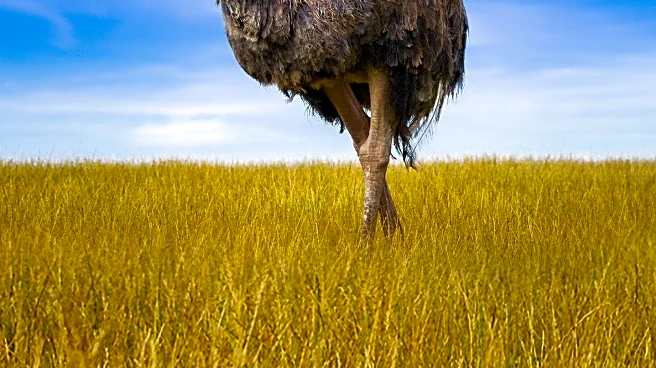What is the story about?
What's Happening?
Canada's Supreme Court has temporarily halted the culling of nearly 400 ostriches at Universal Ostrich Farms in British Columbia, following an avian flu outbreak. The Canadian Food Inspection Agency (CFIA) had ordered the cull after the virus killed 69 ostriches, citing potential risks to human health and wildlife. The farm owners protested the cull, leading to a legal battle that attracted international attention, including from U.S. officials. The court's decision allows the CFIA to maintain custody of the birds while the appeal is considered, with a response required by October 3.
Why It's Important?
The case highlights the complex intersection of animal health, public safety, and legal rights. The avian flu outbreak poses significant risks to both wildlife and human populations, necessitating stringent control measures. However, the farm owners' resistance underscores the ethical and economic implications of such actions. The international attention reflects broader concerns about disease management and animal welfare. The situation may influence future policies on handling zoonotic disease outbreaks and balancing public health with individual rights.
What's Next?
The CFIA will continue to oversee the ostriches' care while awaiting the court's decision. The legal proceedings may set precedents for future cases involving animal culls due to disease outbreaks. Stakeholders, including government agencies and animal rights groups, may engage in discussions to address the ethical and practical aspects of disease management. The outcome could impact regulatory frameworks and public perceptions of animal welfare.
















